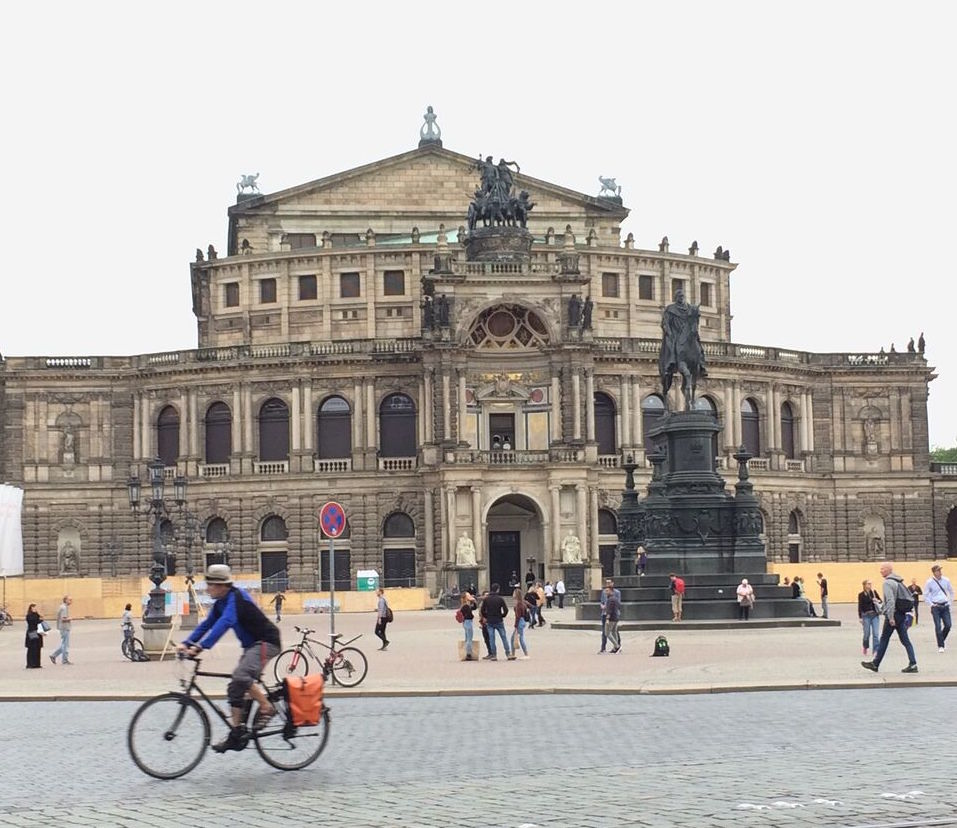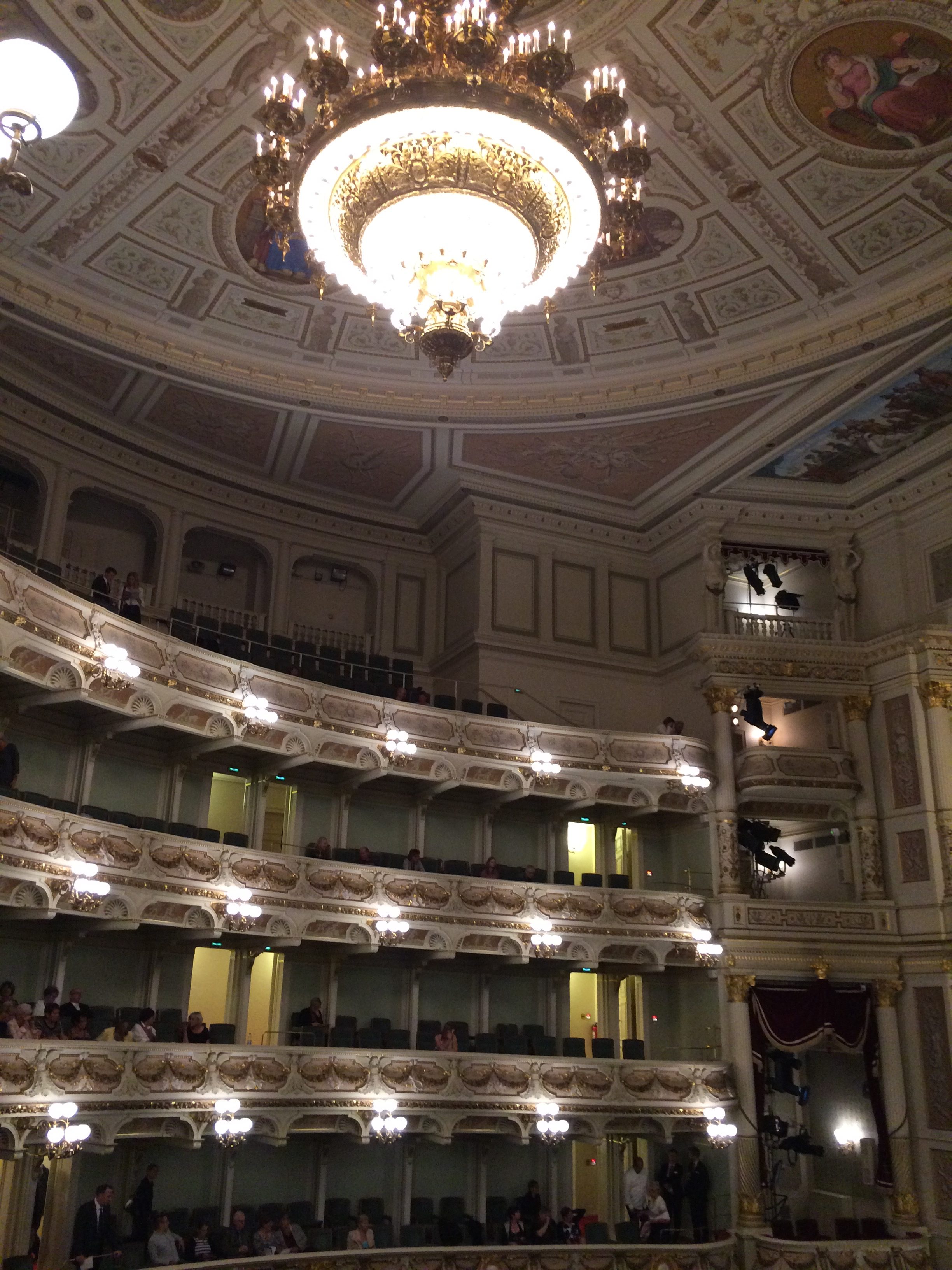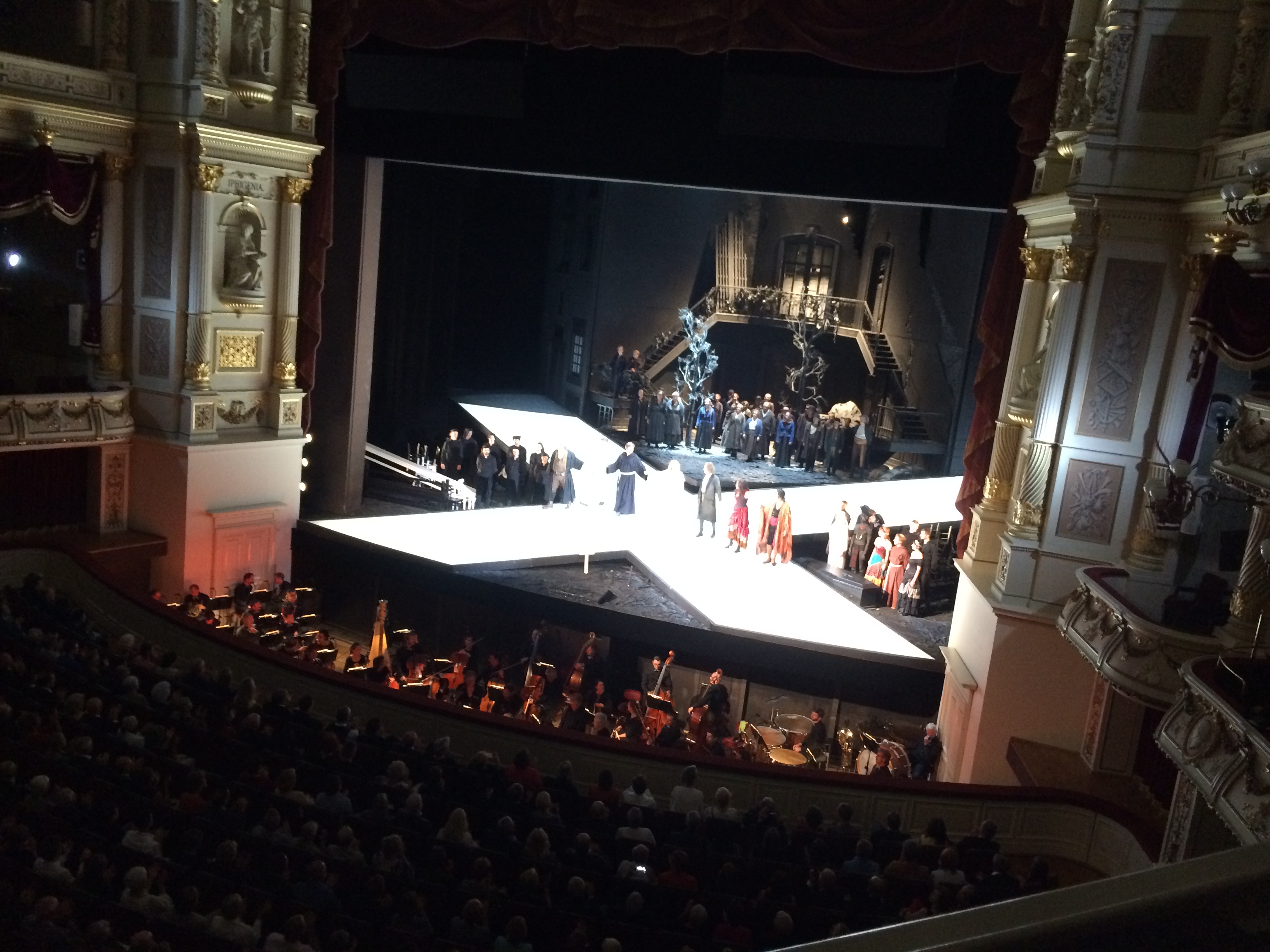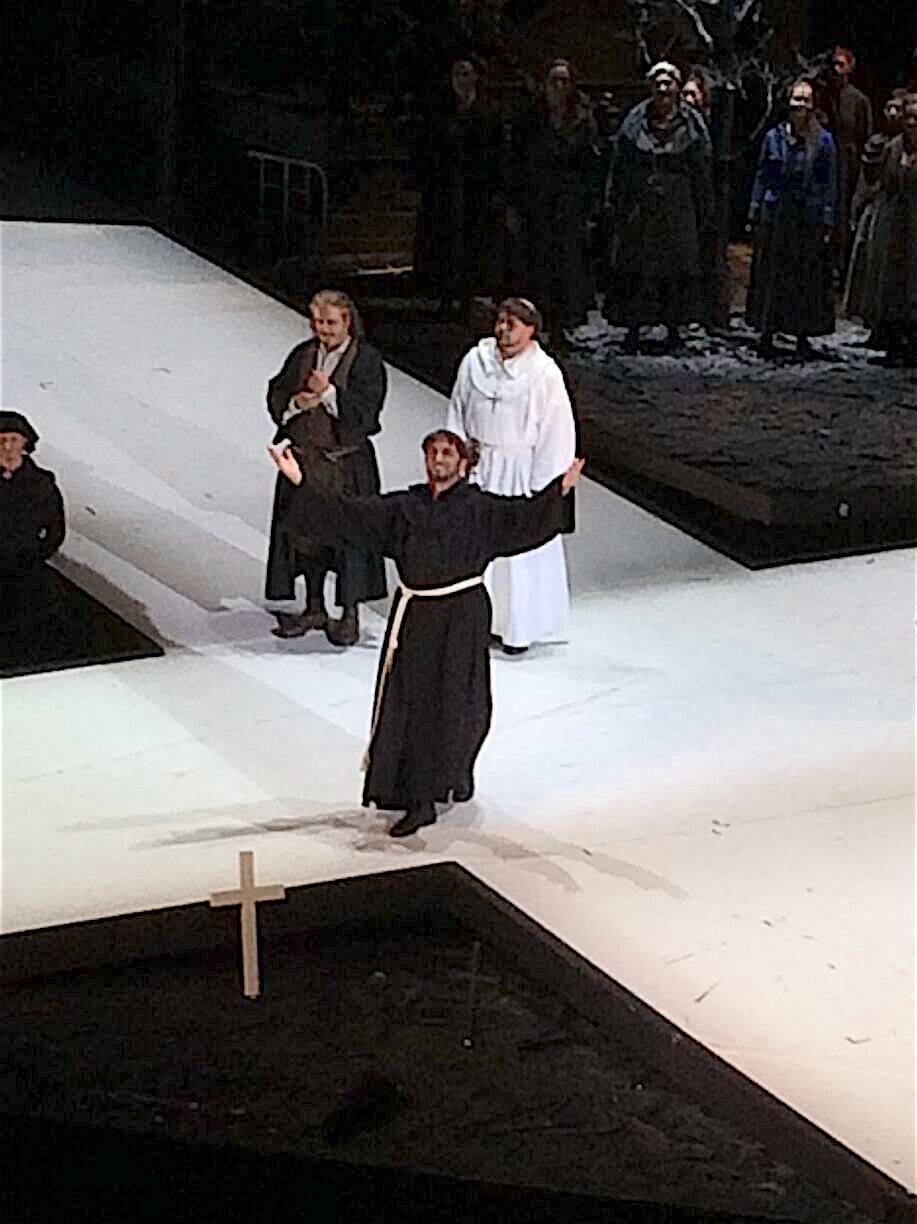
Photo: mine. Please do not reproduce without permission.
Dresden, with its fascinating history and ornate Old Town, has always been a city I’ve long wanted to visit. Two recent events, scheduled within a mere sixteen hours of one another, gave me the opportunity for a brief if fruitful and very music-filled visit. The first, of course, was opera.
It was something of a treat to be present for the official start of the Semperoper Dresden season, which kicked off with a revival production of Verdi’s La forza del destino (The Power Of Fate). Conductor Mark Wigglesworth led a bold, cinematic reading of the score, underlining its epic nature with bold brass sounds and exuberantly lush strings. Suitably subtitled “A Melodrama In Four Acts,” I half-expected Errol Flynn to pop out of designer Julia Müer’s angular scenery — not entirely an exaggeration, considering the episodic and highly sentimental nature of the work.

Photo: mine. Please do not reproduce without permission.
Verdi’s librettist Francesco Maria Piave used two sources as basis for the opera: an 1835 Spanish drama, Don Álvaro o la fuerza del sino (Don Alvaro, or The Force of Fate) by Spanish dramatist and politician Ángel de Saavedra; and a scene from Schiller’s Wallensteins Lager (Wallenstein’s Camp), the first part of the German poet/philosopher’s famous literary trilogy. Forza premiered at the Bolshoi in Saint Petersburg in 1862 before undergoing extensive revisions (including additions to the libretto by Italian writer Antonio Ghislanzoni) and being presented in 1869 at Teatro Alla Scala Milan. Its overture is one of the most performed and popular of orchestral works, and with good reason; it accurately reflects the unfolding drama with memorable melodic lines and some very grand orchestration.
The story, with its themes of vengeance and redemption, seem made for a 1930s Hollywood caper, one of its two central male roles, Don Alvaro, a swashbuckling bad boy who murders the father of his beloved before going on the run for decades, and winding up in a monastery, where he later kills the brother (Don Carlo) of his beloved. So much for penance! But as director Keith Warner rightly notes in the program, the narrative also very much is a study in contrasts, chiefly that between haves and have-nots; this divide underlines a broader social “kaleidoscope,” as he terms it, that went on to be explored and examined in all forms of art, including the literary works of Dickens and Balzac. Warner made his debut at the Glyndebourne Festival this past summer, with the equally intense Vanessa by Samuel Barber. “We are spectators in a big arena of life, in which all events influence each other,” Warner says in the notes for Forza. Such connectivity that drives so much great art, and I think, sustains it over decades, even centuries.

The curtain call for “La forza del destino” at Semperoper Dresden August 31, 2018. (Photo: mine. Please do not reproduce without permission.)
Certainly a well-known facet of Forza for some time now has been its superstitious connections; it could well be considered the Macbeth of the opera world. Baritone Leonard Warren famously, tragically collapsed and died during a 1960 performance, having just sung an aria which begins, “Morir, tremenda cosa (“to die, a momentous thing”) no less; tenor Franco Corelli, well aware of the work’s unlucky reputation, was meticulous in exercising various rituals during performances; superstar tenor Pavarotti never performed it at all. Despite its spooky history, the opera was one of my mother’s favorites, with a 1969 recording (featuring Leontyne Price, Richard Tucker, and Robert Merrill, conducted by Thomas Schippers) being given regular plays on her grand old cabinet-style stereo system.
I kept thinking of what she might’ve thought at Friday evening’s performance in Dresden. I am confident in stating she would have been absolutely delighted that the first full opera I happened to experience here, in my period of temporary relocation in Europe, is one by her very favorite composer. Considering Verdi’s work was the first opera I heard and knew as a child, it felt like the force of fate indeed. I’m also confident that, like me, she would have been thrilled by the singing, which was, in a word, stellar, and were amply aided by the wonderful acoustics of the gorgeous Semperoper Dresden house. As the vengeful Don Carlo, Russian baritone Alexey Markov was a sparky, dynamic presence, his vocal flexibility and great stage presence expanding the character’s range beyond one-dimensional-angry cliches; I would love to hear his (oft-performed) Eugene Onegin at some point. Russian soprano Elena Stikhina presented her Leonora as so much more than a simpering victim, but a multi-faceted, deeply feeling woman whose hungry search for her own unique identity leads to leads to some dark, desolate (literally) places. Stikhina’s vocal richness was balanced by a resplendent tone; she channelled steely, soft, sensuous, and strong with ease, confidence, and charm, and deserved every “bravo!” directed at her at the curtain call.

Tenor Marcelo Puente at the curtain call for “La forza del destino” in Dresden on August 31, 2018. (Photo: mine. Please do not reproduce without permission.)
Tenor Marcelo Puente, who I interviewed when he appeared in Toronto last spring as Cavaradossi in Puccini’s Tosca, has the right mix of macho physicality and leading-man-charm for Alvaro — and that voice! With a thickly virile sound, Puente’s bright top notes are nicely balanced by a very impressive oaken bottom. Many of Alvaro’s musical lines require thrilling flexibility and smart modulation, and Puente was more than up to the task in each. Since hearing him in Toronto, his voice has taken on a greater variety of tonal color; it’s become broader, more sensuous, lush. The Argentinian demonstrated ample drama in both runs as well as sustained tones. It was a performance that made me hungry to hear more of his Verdi repertoire. Fingers crossed.
So La forza del destino was the perfect start to my opera season; it was also an ideal introduction to the Semperoper Dresden, though it was not the only time I experienced the gorgeous house during my whirlwind visit — Shostakovich, Gautier Capuçon, and the Gustav Mahler Youth Orchestra awaited the very next morning.

2 Pingbacks